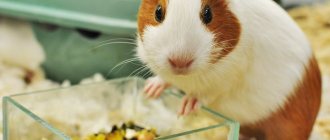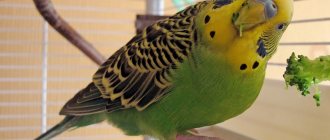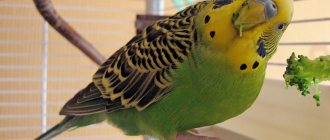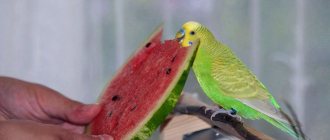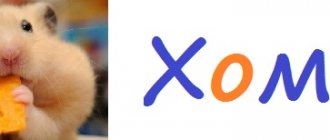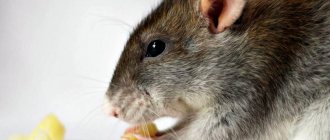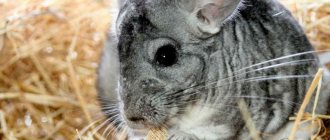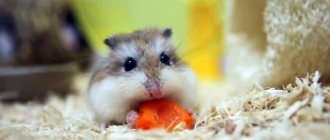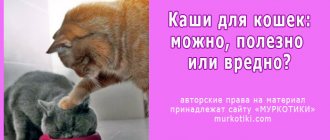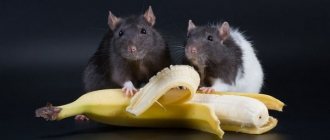There is no doubt that parrots love nuts and seeds. Whether found in the wild or at home, nuts are a nutritious source for parrots.
Peanuts are one of the cheapest nuts you can buy and make a great snack for us humans.
Of course our parrots would love for us to share, but before we do that, we have to ask ourselves - can parrots eat peanuts?
The answer to this question is both yes and no. Yes, parrots can eat peanuts. In fact, peanuts contain many nutrients that play an important role in a parrot's diet. That being said, you do need to be careful about what peanuts you feed your parrot. Specialty peanuts may contain added salts and spices that may be harmful to parrots. Additionally, poor quality peanut shells may contain something called alfatoxin, which can cause illness in parrots. For this reason, you need to choose your peanuts very carefully.
What benefits do peanuts bring to parrots?
Peanuts have a number of beneficial properties for parrots. These include, but are not limited to:
Protein
Parrots require a good balance of protein in their diet. Too much or too little can lead to complications. Protein is necessary for the formation of feathers, as well as for keeping birds warm during molting. A lack of protein can lead to a fatty liver and delayed growth and development.
Vitamin B7 (biotin)
Biotin helps prevent heart disease, skin diseases and neurological disorders. Like proteins, too much biotin can be harmful. A parrot's diet requires a good balance.
Copper
Copper is essential for healthy bones, blood vessels and connective tissues. Without it, parrots may experience feather pigmentation disorders, brittle bones, and shell abnormalities.
Manganese
Manganese is essential for shell formation, growth, reproduction, and normal bone growth. Without it, parrots may experience poor muscle coordination, perosis, or dislocation.
Vitamin E
Vitamin E is essential in the diet of any parrot. Without it, parrots may experience muscular and skeletal dystrophy, parakeratosis, softening of the brain, exudative diathesis and other bird diseases.
Phosphorus
Phosphorus is essential for healthy bone development as well as metabolism. Without it, parrots may have problems laying eggs or poor quality eggshells.
Magnesium
Magnesium is essential for heart health, proper bone formation and carbohydrate metabolism. Without it, parrots can experience slow growth, lethargy, seizures and even death.
Supplements and vitamins
They are sold ready-made in pet stores. The main such additives include:
Chalk. It is an ideal source of calcium, the deficiency of which in birds worsens the condition of their claws and beaks. Chalk is sold in the form of special toys or in grated form. You have to use exclusively specialized purified chalk, so it is forbidden to give the wavy construction chalk, which contains numerous impurities and additives that are harmful to the bird.- Eggshell. It should be washed well, and it is recommended to give it in crushed form. It contains a lot of magnesium, sulfur, calcium and iron, so it is an ideal source of vitamins for a small bird.
- Bone flour. It is offered in grated form at every pet store and also contains calcium and phosphorus. It is often used by manufacturers of feed mixtures, so if you buy a high-quality product, then there is no need to additionally buy bone meal.
Pet stores offer customers specialized vitamins and minerals. They are often small toys that are attached to the walls of the cage. Parrots eat these supplements while playing, which has a positive effect on their health and appearance.
Water
Budgerigars should always have free access to clean water. It is poured into special drinking bowls, available on the market in various shapes and sizes. The water is changed daily, otherwise it quickly becomes polluted. But not all water is suitable for birds.
It is recommended to give the birds boiled liquid. Raw water is allowed only if it is previously well purified and therefore does not contain harmful components. It is allowed to use mineral water with gases, which is pre-filtered. This water contains potassium, magnesium and sodium. It is allowed to pour a decoction of chamomile or rosehip into the drinking bowl.
Wavys can be given a small amount of freshly squeezed juice, which is mixed with water, and lemon or apple juice without additives is usually used.
What is aflatoxin?
Aflatoxin is a group of toxins produced by a fungus that is commonly found in peanuts, as well as grains and cereals. Essentially, it is a type of mold.
This mold tends to grow when peanuts are not stored properly. Like most molds, it grows in moist, warm, dark conditions.
When aflatoxin enters a parrot's body, it can be toxic. In particular, aflatoxin is a liver toxin to which birds are particularly sensitive. Even low levels can lead to toxicity or even death, and long-term exposure is strongly linked to liver cancer. Chronic exposure to aflatoxin can also cause:
- Nasal discharge
- Weight loss
- Diarrhea
- The feather is frayed
- Black edges on feathers
- Itching
- Self-harm
- Voice changes
- Convulsions
For this reason, you should only feed your parrots high quality peanuts that you know have been stored properly.
If you feed your parrot peanuts and notice any of the above symptoms, get him checked by a veterinarian as soon as possible. Aflatoxin can be fatal, so don't take the risk.
What do wavy birds eat?
The diet is varied. Parrots love to eat a variety of foods. The diet includes not only different types of grains, but also fruits, berries and grass.
Regime and proper nutrition are the key to the beauty, health and longevity of a budgie, so it is not recommended to skimp on it.
For an adult bird, 1 to 2 teaspoons of grain mixture is enough, but the bird must have access to minerals, herbs or other useful supplements every day.
The base is grain, and the rest of the products are additives.
What food do you give your parrots?
I make it myselfFrom the store
To provide your pet with proper nutrition, simple rules are taken into account:
- Do not give the bird a single daily portion;
- Only fresh ingredients are used, so residues must be removed in a timely manner;
- A drinking bowl must be installed near the feeder, allowing the bird to always have access to water.
Sometimes wavy fish, for various reasons, refuse to eat a certain brand of food, and this usually indicates the presence of some additives, so the mixture will have to be replaced.
Basic food at home
It is represented by grain mixtures, which serve as the basis for the bird’s nutrition. The stores offer many varieties of such feeds, offered by domestic or foreign companies. Due to their increased metabolism, parrots quickly digest grain.
It is recommended to choose a mixture that includes at least 6 grain crops. If you lack experience, you should not make food yourself, as there is a high probability of harming the health of the bird. Therefore, it is advisable to buy it ready-made, but in reliable and sealed packaging, and not by weight.
The basis of the diet includes the following components:
- millet, which can be red, black, yellow or white, and makes up approximately 70% of the total daily diet;
- oats, which take up 10% of the daily requirement;
- seeds, which include flaxseed, sunflower, hemp or canary seed, as well as wheat.
It is not recommended to add millet to the diet, which does not have a shell that prevents oxidation, so there is a high probability of harming the health of the bird.
What fruits and vegetables to feed
When creating a balanced diet for your bird, you should not forget about fruits and vegetables.
They must be given only in their pure form, so they are first washed with water.
Only seasonal vegetables and fruits are selected, which do not contain chemicals or harmful additives.
It is forbidden to give foods with rot or mold, as their consumption causes serious diseases in birds.
The following vegetables and fruits are ideal for parrots
- feed carrots contain a lot of carotene, and they can be given whole or grated, and they also go well with boiled eggs;
- melon;
- pumpkin and seeds, which are pre-ground;
- cucumbers, which have a positive effect on metabolism, and are ideal if the bird is overweight;
- tomatoes containing carotene, but only ripe tomatoes that do not contain the alkaloid should be given;
- white cabbage, and the leaves can be fed whole or torn into small pieces;
- beets containing fiber, vitamins and sugar;
- green peas or beans, but only fresh and soft legumes are selected;
- Krasnodar pepper, which contains many nutrients, and it is also advisable to give pepper seeds;
- apples, which can be given daily;
- tangerines, oranges and other citrus fruits, which are not only useful due to vitamin C, but also incredibly tasty, but it is not recommended to overdo it with them;
- pears are a sweet treat, but they should be given once a week;
- bananas are allowed in limited quantities, and they must also be given exclusively peeled;
- peaches or apricots, but they must be ripe.
- Grapes can be given to a parrot in certain doses.
It is allowed to give kiwi once a month to increase immunity, but without the skin.
Nuts
It is allowed to add nuts to the diet of budgies, but hazelnuts or walnuts are chosen for this. Peanuts are not recommended for wavy animals. Nuts can be given to the bird once every 2 weeks, since they are represented by excessively fatty foods.
The nuts are first cleaned of shells and husks, and it is also advisable to cut them to make sure there are no worms, mold or black spots.
Porridge
Cereals are healthy foods for birds. They allow you to saturate the body with useful components. Therefore, it is allowed to periodically give porridge, which ensures normalization of metabolism.
It is allowed to make porridge from buckwheat, rice, beans or other crops. You can give them to parrots separately or together. Porridges are boiled exclusively in water, since milk is prohibited. You cannot add salt or sugar, and the finished product can be stored in the refrigerator for no more than two days.
Greenery
It is very useful for a bird to eat greens. It improves the nutrition of the wavy, and is also considered the main component of the bird’s diet.
Greens are a source of nutrients and also strengthen the immune system.
It is advisable to give your parrot lettuce, chicory, spinach, clover, dandelion, carrot and beet tops, as well as plantain. It is prohibited to include potato or tomato tops, dill, bay leaves or decorative flowers in the diet.
Wooden branches
People who just got a wavy do not know whether they can be given twigs. In fact, they must be present in the birds’ diet.
The advantages of this diet supplement include:
- twigs are used not only as food, but also as a beak cleaner;
- improves the condition of the claws;
- The twigs contain important microelements and fiber, which has a positive effect on metabolism.
The most suitable branches are maple, aspen, alder and birch. It is allowed to use branches of fruit trees. Before placing the twigs in the cage, it is recommended to rinse them under hot water.
Sprouted grains
If you germinate grains, you will get soft, tasty and healthy grass. The grains themselves are nutritious food containing many vitamins and fiber. If wavy animals constantly consume sprouted grains, this will have a good effect on their immunity and metabolism.
The procedure for germinating grains is divided into successive stages:
- the largest and highest quality grains are selected;
- they are washed well with plain water;
- pour warm water overnight;
- repeated washing is carried out;
- clean grains are laid out on a plate and covered with pre-moistened gauze;
- the gauze is re-wetted every 4 hours;
- literally within 24 hours sprouts appear.
Grains with sprouted grass can be immediately given to a parrot, and they can be stored for no more than two days.
How to ensure high quality peanuts?
So, we have established that you can feed your parrots peanuts as long as they are of high quality. But how do you know if the peanuts are of high quality?
First, make sure your peanuts are safe for human consumption. Second, choose a brand manufacturer. Commercial producers test all their peanuts for aflatoxin before sale. If they do not exceed the levels allowed by the USDA, they do not sell them in stores. Avoid peanuts that are not sold under brand names, as well as peanuts that are sold in bulk.
Despite some rumors that roasting destroys aflatoxin, this is not true. You can feed your parrot roasted peanuts here and there, but again, make sure they are high quality. The idea that roasting destroys this toxin is just a rumor.
Hard food
The daily diet of parrots should include a grain composition. This is the basis without which it is difficult to imagine proper nutrition. When to pour food into the feeder (the daily norm once a day or add food several times a day) does not really matter, the main thing is that the parrot always has enough food, since they can do without food for no more than 24 hours.
Pet stores offer a wide selection of grain mixtures, ranging from the diet of budgerigars to large birds. Feed compositions vary depending on the size of the pet and its natural habitat. The following brands have proven themselves well: Italian Padovan, Belgian Versele-Laga, Italian Fiory, Russian RIO. When purchasing, be sure to make sure that the grain feed is tightly packaged and that its expiration date has not expired. Before pouring it into the bird's feeder, carefully inspect the grain to ensure there are no foreign impurities in it.
The nutrition of budgerigars or other species of these birds can be diversified by germinating the grain mixture. Sprouts are a storehouse of vitamins for parrots, which will have a beneficial effect on the functioning of your pet’s entire body. Please note that if you do not wait for the greenery to fully germinate (to the point of grass), but give a slightly hatching sprout, then such feeding provokes sexual behavior in birds. In addition to very young shoots, the bird also needs ordinary greens (nettle, lettuce, fireweed, dandelion). Greens from oats, wheat, and lettuce can also be grown on your windowsill.
When feeding Grays or other large birds, keep in mind that mixtures for large parrots already include nuts and seeds, so you should not offer them separately; use them separately only as a reward or treat.
How many peanuts can you give a parrot?
Many parrot owners do not like to feed their parrots peanuts at all. Confirming the absence of aflatoxin in peanuts can be very difficult, so many people simply play it safe. If you are going to feed your parrot peanuts, do it in very small quantities. Two or three peanuts as a small snack are fine, but anything else can be unhealthy.
Always make sure that if you feed your parrot peanuts, remove them from the shell first. This may help prevent aflatoxin from being ingested.
Porridge
Porridge for parrots is also very healthy. This is not only a source of many microelements, but also a means that will help birds normalize their metabolism if it is disturbed. Cook porridge only in water, without adding sugar or salt.
You can cook complex mixtures consisting of several cereals, as well as mono-porridge for budgies from buckwheat, oatmeal, and brown rice. You can add legumes, as well as grated fruits or vegetables to the porridge. The finished cereal can be cooked viscous or crumbly. In this case, listen to the food tastes of your pet.
You can store the cooked porridge in the refrigerator for no more than 2 days.
Can a parrot eat peanut butter?
Yes. Your parrot may need peanut butter in small amounts. Again, you want to make sure that the peanut butter you feed your parrot was from a reputable company that tests for aflatoxin before placing their products on the shelves.
Organic peanut butter contains no added sugar, but storage conditions may be questionable. When it comes to feeding peanuts or peanut butter to your parrots, stick with the larger names.

